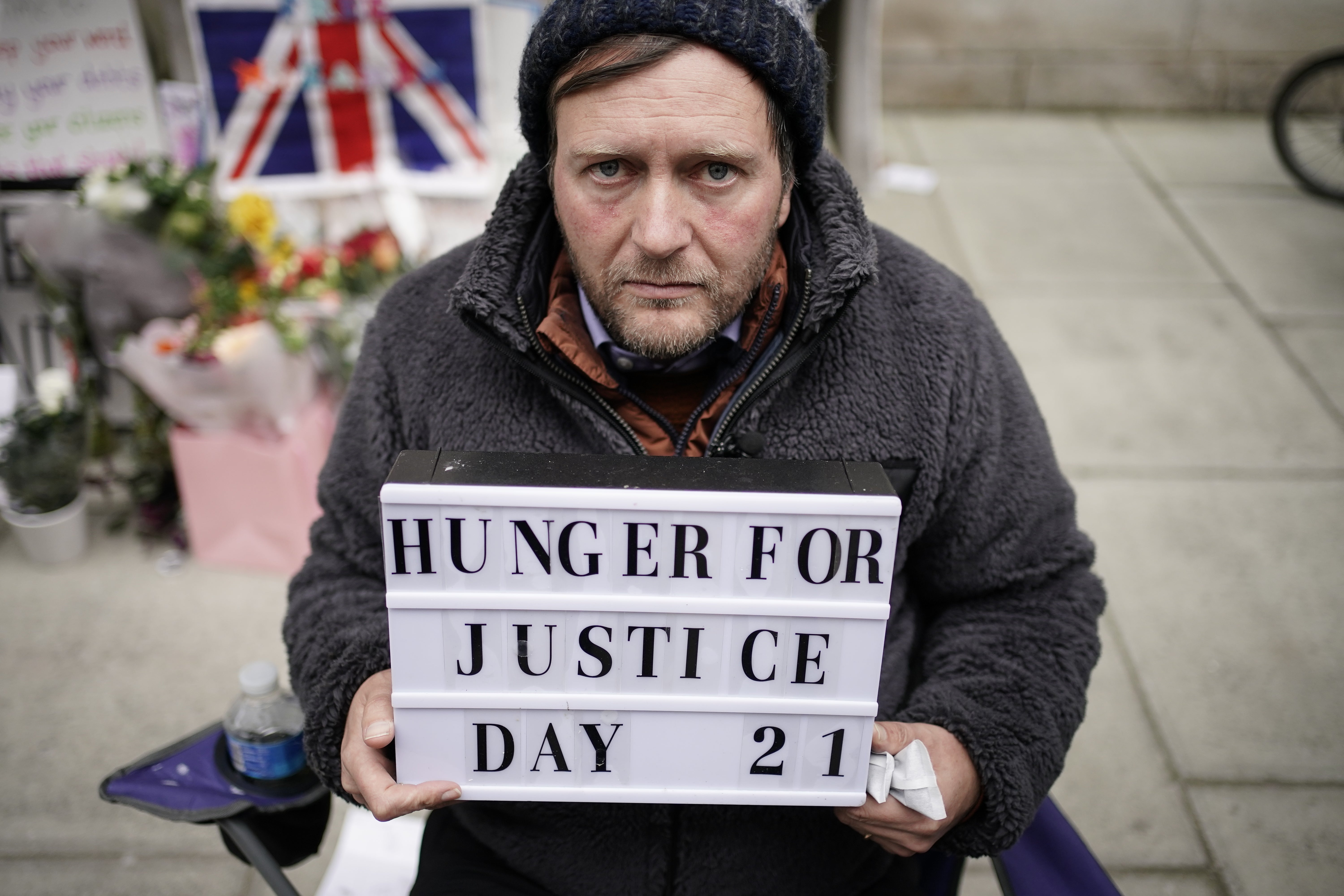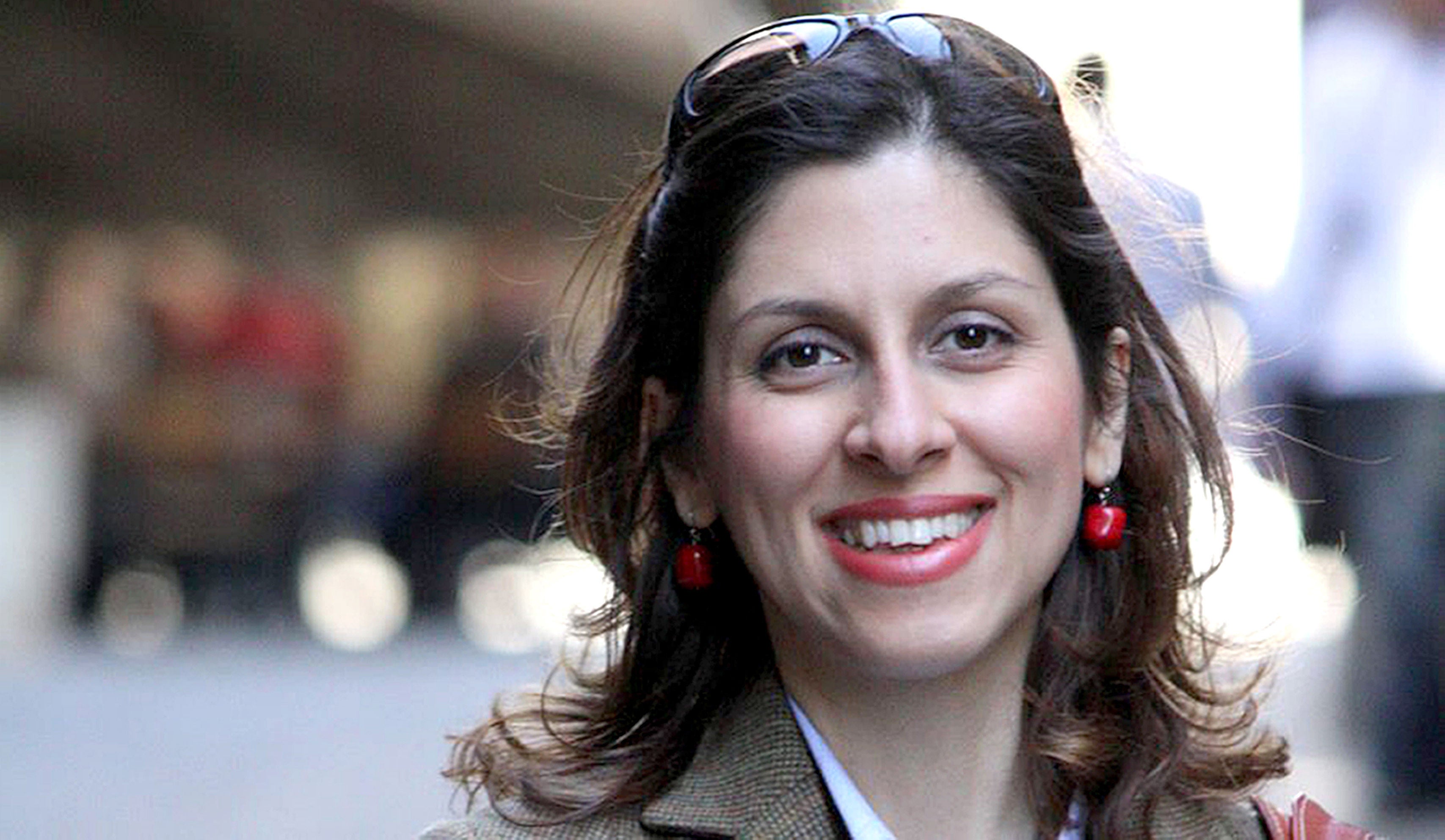
Detained British-Iranian mother Nazanin Zaghari-Ratcliffe has had her passport returned and a British negotiating team is in Tehran, her MP has said.
Mrs Zaghari-Ratcliffe has been detained in Iran since her arrest in 2016 on charges of plotting to overthrow the government – allegations she has always denied.
A £400 million debt relating to a cancelled order for 1,500 Chieftain tanks dating back to the 1970s had been linked to the continued detention of Mrs Zaghari-Ratcliffe and other UK-Iranian dual nationals held in the country.
On Tuesday, Hampstead and Kilburn MP Tulip Siddiq tweeted: “I am very pleased to say that Nazanin Zaghari-Ratcliffe has been given her British passport back. She is still at her family home in Tehran. I also understand that there is a British negotiating team in Tehran right now. I will keep posting updates as I get them.”
According to her employer, the Thomson Reuters Foundation, her lawyer Hojjat Kermani, when asked whether Mrs Zaghari-Ratcliffe will be released, said: “I am hopeful that we will have good news soon.”
Mrs Zaghari-Ratcliffe was arrested in Iran as she prepared to fly back to the UK, having taken her daughter Gabriella – then not even two years old – to see relatives.
She was accused of plotting to overthrow the Iranian government and sentenced to five years in jail, spending four years in Tehran’s Evin Prison and one under house arrest.
Her husband, Richard Ratcliffe, spent 21 days on hunger strike last year in London to draw attention to his wife’s case.

In January, the daughter of another British-Iranian detained in Iran said her father was to begin a hunger strike due to a lack of progress in securing his release.
Retired civil engineer Anoosheh Ashoori has been held at Evin Prison on charges of spying for Israel, which he denies, for more than four years.
In a video posted in relation to the hunger strike, Elika Ashoori said she was at that time “extremely concerned” for her father’s health “as he approaches his 68th birthday”.
In December, Foreign Secretary Liz Truss said the £400 million that Britain owes Iran is a “legitimate debt” that the Government wants to pay.

Sacha Deshmukh, Amnesty International UK’s chief executive, warned that the latest reports should be treated with caution as there had been “false dawn after false dawn” in the long-running process.
He said: “We sincerely hope these reports are correct.
“The detainees and their families have been suffering for years, and a resolution can’t come quickly enough.
“It’s been clear for a long time that the Iranian authorities have been targeting foreign nationals with spurious national security-related charges to exert diplomatic pressure.
“In the past we’ve had false dawn after false dawn over possible breakthroughs, so it’s only right to be cautious at the moment.”
Rupert Skilbeck, director of the Redress human rights organisation, also urged caution.
He said: “The latest indications coming from Iran are a positive sign, but there have been false dawns in Nazanin’s case before. So we remain cautious and continue to encourage the UK Government to do the right thing and ensure the debt it owes to Iran is paid, and that it does everything in its power to secure Nazanin’s release.”
In relation to the debt, the Foreign, Commonwealth and Development Office said: “We continue to explore options to resolve this case and will not comment further as discussions are ongoing.”
On the cases of Britons detained, a Foreign Office spokesperson said: “We have long called for the release of unfairly detained British nationals in Iran. We don’t comment on speculation.”







